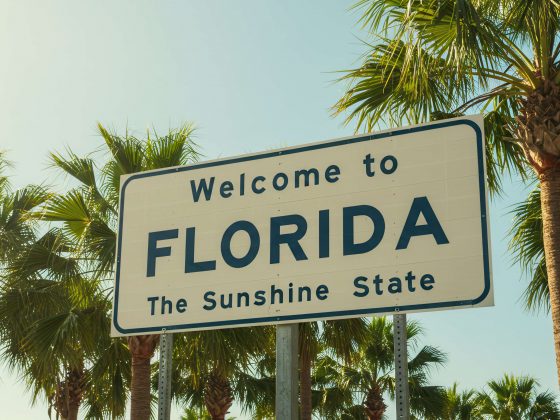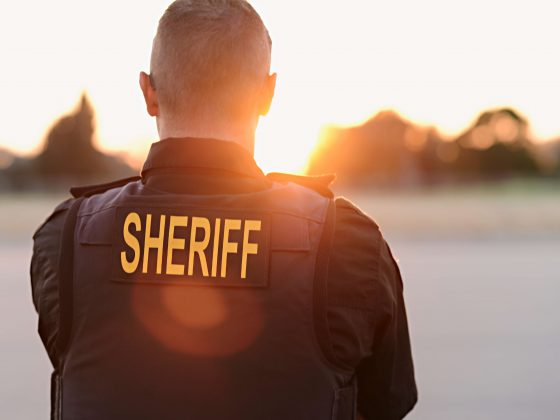When it comes to substances and driving, the police follow several vehicle search laws. In Florida, drivers are protected against the unlawful search and seizure of drugs. This makes arbitrary car searches illegal, although a police search can still happen if there’s a valid reason. In most cases, an officer needs to have a reason to believe a crime has been committed. If they can support this reason, they can search your car.
Use eTags© to Quickly Complete Your DMV Service. Renewals, Title Transfers and More, All Online!
The Fourth Amendment and Car Searches
Next to stop and frisk law, vehicle search law is commonly discussed. Florida marijuana decriminalization has changed the status quo between driver and officer, but the Fourth Amendment doesn’t protect everyone. Under the Fourth Amendment, the police have more leeway to examine a vehicle, rather than a home.
This leeway is called the “automobile exemption” to the well-known search warrant requirement. Under the automobile exemption, individuals don’t have as much privacy when driving a motor vehicle. This exception is also supported by much-needed public safety concerns like excessive speeding and drunk driving.
When Can the Police Search Your Car?
Can cops search your car without a warrant? Yes. When can police search your car without consent? Well, this is a trickier question. Several circumstances permit the immediate search of a vehicle in Florida.
The first circumstance is consent. If you give an officer verbalized consent to search your vehicle, they can search it. Probable cause, too, gives them access to your vehicle. Probable cause gives them reason to believe your vehicle has evidence to a crime. If an officer reasonably believes a search is needed to ensure their protection, your car can be searched. Normally, a need for protection is backed up by the assumption of a hidden weapon.
An officer can, of course, have a valid search warrant. A warrant isn’t normally present during vehicle stops and pull-overs. Search and seizure laws are complex, beyond the roadside visit. If you’ve been arrested, however, a search can be conducted in relation to the arrest.
How Do Police Determine Probable Cause?
Probable cause can be determined if an officer has reason to believe a crime is being committed. The police can, for example, search your car if your eyes are bloodshot. Likewise, they can search your car if they smell marijuana. If your car fits the description of a getaway car used during a crime, it can be searched.
The evidence of a crime—in this case, marijuana possession—is in “plain view,” your car can be searched. Evidence doesn’t need to be marijuana, itself. It can be a glass pipe with drug residue, for example. Other types of evidence include dirty lighters and joint wraps.
The term “reasonable suspicion” is applicable here. It might not establish probable cause, but it can still supply indisputable evidence of a crime. Again, many officers will ask for permission to search a vehicle. If the request is declined, or if the driver remains silent, the car legally can’t be searched if no evidence is in plain view.
What About Medical Marijuana?
In Florida, only a small quantity of marijuana is legal for carry. A medical card can’t prevent prosecution if a specific limit is surpassed. That said, offering a valid medical marijuana car may not destroy the probable cause needed for a current vehicle search. So, if an officer has reason to believe marijuana is being consumed in the vehicle—or being carried in excess—a search can still commence.
This standard exists for several reasons. The strongest reason, however, is due to a presumption of stronger illegal drugs. Even if an officer acknowledges a card, they can proceed with an investigation. The illegality of carrying more than a medical card allows is very real, and law enforcement personnel will make sure certain laws are upheld.
On Validly Prescribed Marijuana
Because medical marijuana laws can complicate search and seizure standards, we feel you should know about validly prescribed marijuana legality, too. A medical marijuana card allows the possession of clinically or dispensary-distributed marijuana. It’s possible to illegally carry marijuana if it was illegally obtained. For this reason, a vehicle search is still likely if a medical marijuana card is presented.
Florida car search laws may seem complex when medical marijuana enters the mix. It isn’t, however, counterintuitive. Florida search warrant laws prioritize the individual’s privacy, but the Fourth Amendment doesn’t protect drivers as much due to a car’s incredible danger to passerby.
We hope this clears up any questions you might have surrounding search and seizure laws in the state of Florida.
If you enjoyed this piece be sure to check out these 7 weird and (mostly) true Florida laws just in case you were ever curious what would happen if your elephant meter expired.









6 comments
I was parking at a residencial and smoking and the cops Came and search my car without any warrant and he did confess that he was called by a deputy that lives there . Is it legal to do that ?
Hello Emil. When it comes to guidance on legal matters, you may want to consult an attorney who will be able to give you a better direction with additional information about your case. Good luck.
I was stoped and searched the cop said it smells like weed I do not smoke weed at all he checked me to there was nothing to find it that legal?
Hello Fernando. If a cop pulls you over, cooperation is the best ally you could ever have. Cops have their own screening techniques but if you are confident about your case then show cooperation and things will resolve sooner than you expect.
What if the weed wasn’t burnt? If they said they smell it, can they still search your persons and vehicle?
Hello Vincent. Police officers could also observe the way you drive to determine whether you driving under the influence of any substance.